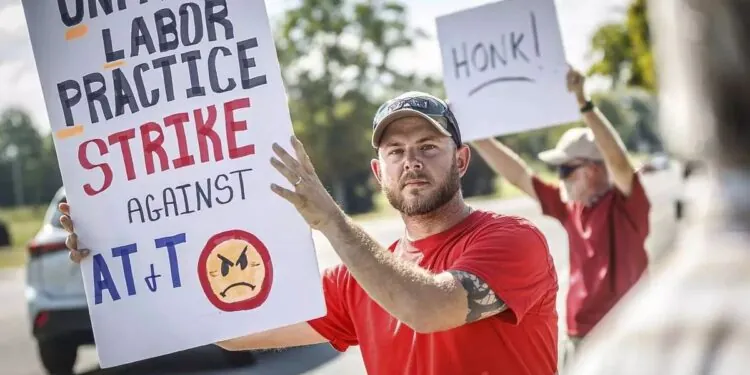Over 17,000 employees of the Communications Workers of America Union across the southern region are affected.
“We are going on strike because the company has neglected to send representatives to our bargaining table in Atlanta who have the authority to make decisions regarding the contracts of seventeen thousand employees across nine states,” explained William Johnson, a Faculty Technician.
AT&T workers in the Golden Triangle are determined to persist with their protests until they achieve the desired changes.
According to facility technician William Johnston, he believes that the company management did not engage in fair bargaining practices.
According to Johnson, the company has failed to send a representative to the bargaining table who has the authority to make decisions that won’t be overturned by someone higher up in Dallas. “When you go into bargaining, the company is responsible for sending a delegate from Dallas, or whatever location that they want, that has the ability to make a decision, stand behind it, and that decision not gets overturned in Dallas by someone with more authority. They failed to do that. We have been bargaining since June,” said Johnson.
Currently, workers are on strike in nine states, including Mississippi and Alabama, according to NPR.
The striking workers emphasize that their absence from the company can have a significant impact on the community.
Johnson emphasized the critical impact of a major outage, stating that it could potentially disrupt operations at the Airforce base or even the 911 centers. He highlighted the behind-the-scenes efforts made by his team, often working tirelessly during late hours, to ensure uninterrupted access to communication devices and the internet for the public.
According to Johnston, this strike encompasses more than just a desire for higher wages.
Johnson emphasized that the main objective is not solely focused on money. Rather, the primary goal is to initiate negotiations with the company. The strike is not driven by financial motivations, but rather by the absence of decision-makers who can determine the best course of action for the company’s future.


